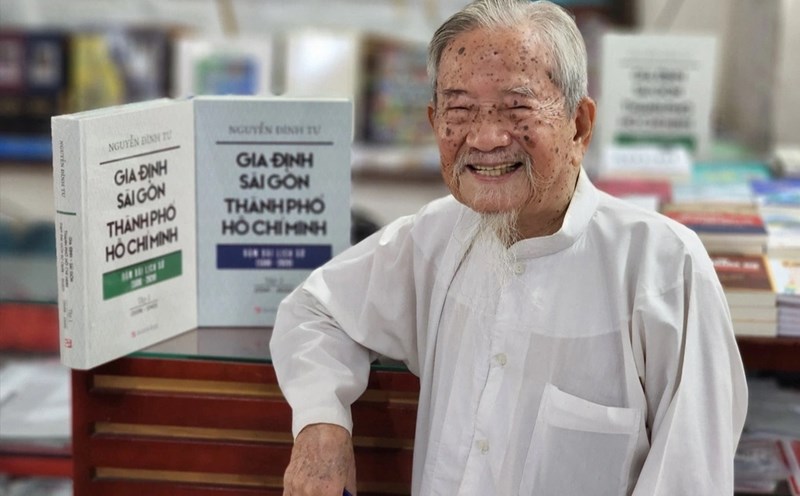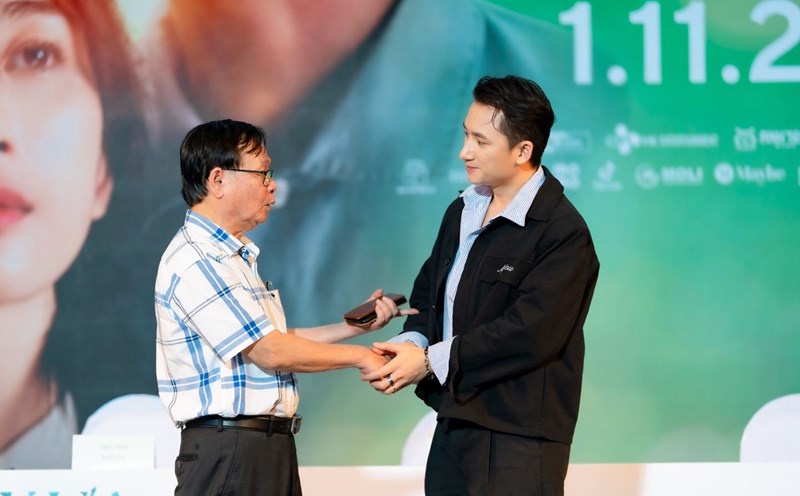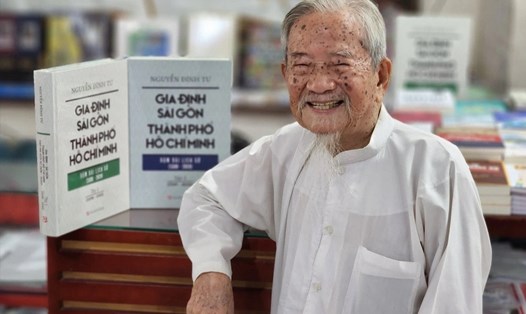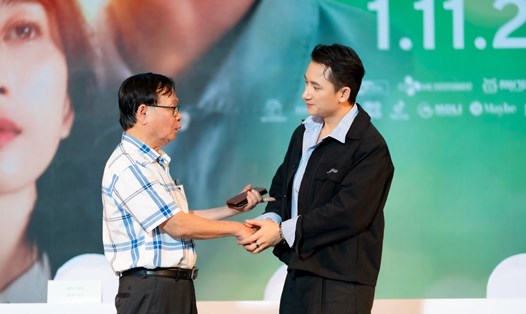After reading more than 200 pages of her novel “Eastern Soldiers”, I remember some details, small ones, but I found them touching, such as the question of Y (a female soldier of K11) when she was on the battlefield: “When will we be able to bathe with fragrant soap?”; the dream of Hoan (the main character of the novel, Deputy Commander of Bu Dop District) when “his child grows up and will not have to hold a gun like his parents.
All night long, Hoan was filled with excitement, longing to return to his child; the image of the guerrilla captain Dieu D'Hen (a Stieng ethnic), after the tragedy of his family being killed by American bombs, still "carrying his child on his back, gun in hand, joining the fight"...
Do you still remember your feelings when you heard, restored, and wrote about the heroic battle of the soldiers on the legendary Ba Ra mountain (Phuoc Long town, Binh Phuoc), over a period of 15 years (1960 - April 1975) and the portraits of the simple, brave Eastern soldiers on the Phuoc Long battlefield during the resistance war against the US to save the country?
- I am the daughter of a soldier, born and raised in a family with many generations of soldiers: Father, brother, husband, grandchildren... From childhood until today, the most beautiful image of a soldier in my heart.
The best, most touching, proud, and attractive stories to me are about soldiers on their journey of fighting and sacrificing for the independence and freedom of the Fatherland.
When writing "Eastern Soldiers", I not only met and talked with veterans who fought in the legendary Ba Ra Mountain and neighboring areas, I also went to Ba Ra Mountain many times to burn incense on the memorial stele of the heroic martyrs who sacrificed their lives.
Amidst the majestic mountain winds and clouds, I feel more deeply the sacred incarnation of those who "Used their blood to water the motherland".
I cried when I read the words on the tombstone: "Glory belongs to you - those who fell for the Fatherland."
Listening to the veterans recount the years of arduous but heroic, painful and resolute fighting of the army and people of Phuoc Long during the resistance war against the US from 1960 to 1975, I was deeply impressed and moved. My gratitude was multiplied. Those soldiers - they were so simple and great.
I am deeply moved by the words of Colonel Nguyen Van Ngoan, now over 80 years old: “Why did you find out so late? Many veterans have passed away! If we don’t take advantage of the time, I’m afraid we won’t be able to meet many people to hear stories about!”
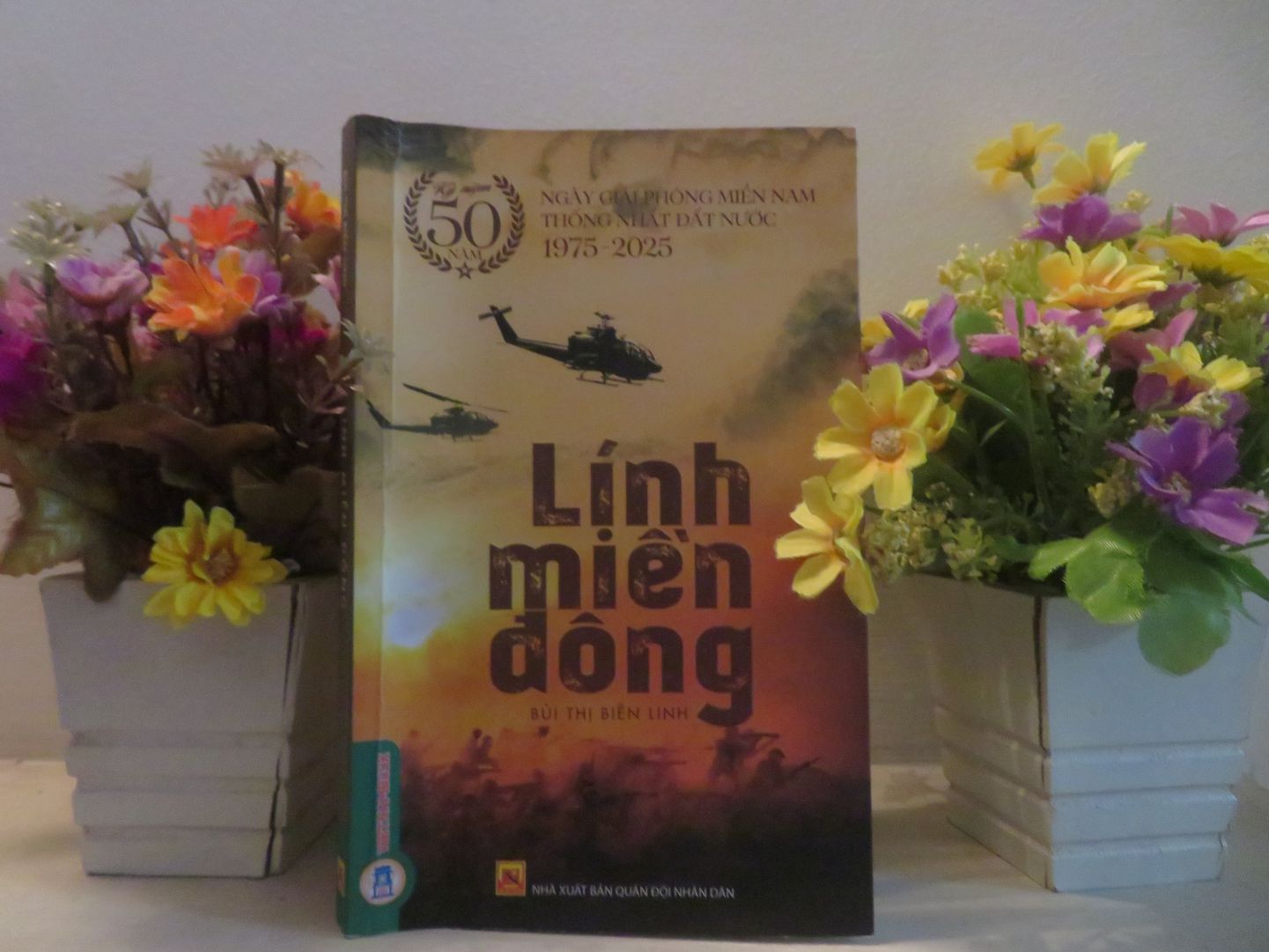
Writing a novel about war is really hard work. In “Soldiers of the East”, how much truth (from memories of the people involved - historical documents) do you combine with your imagination - as a poet, a writer? What is your opinion when talking about the authenticity of a historical - war novel?
- It is true that writing novels about war is very difficult, even more difficult for people of our generation. But the truth about the heroic history of the nation and the greatness of the soldiers, the gratitude for their noble sacrifices have urged me to write to show gratitude.
I chose the non-fiction novel style. Respecting and exploiting the historical reality as much as possible, it was recreated through the memories of the veterans, militiamen, and guerrillas who directly participated in the fighting.
I spent two and a half years searching, listening to historical witnesses and finding historical sources that have been distilled, generalized and reproduced. It is very difficult to quantify specifically, but the truthful elements of historical reality account for more than 60% of my work.
In writing, especially novels, the elements of imagination and creativity are essential. Because literature reflects history truthfully, not copies it. From historical reality, the writer must know how to use literary techniques to creatively reflect that reality through language, emotions, through his own perspective, viewpoint, and intelligence to revive historical reality. Each character must be both specific and general. Literature calls them "typical characters", epic characters.
This is a big issue, each writer has a different concept of choice. For me, historical war novels must respect history. Reflect truthfully and objectively on that historical period. But as I said above, reflecting truthfully is not at all copying history.
The novel “Eastern Soldiers” published by the People’s Army Publishing House is part of a series of books celebrating the 50th anniversary of the Liberation of the South and National Reunification. In your opinion, how can your novel in particular and the series of books in general reach more readers?
- "Eastern Soldiers" has been printed in 1,775 copies, distributed to the entire army and selected for the book series commemorating the 50th anniversary of the Liberation of the South is my happiness.
I hope that the Army Publishing House will reprint more books in this series. I hope that media agencies such as newspapers, radio stations, and readers will have articles and sections to widely introduce the works in many forms so that the works can reach more readers. That is also a practical work to nurture and encourage patriotism and the spirit of protecting and building the Fatherland for the people, especially the young generation today and tomorrow.
Poet, writer, teacher Bui Thi Bien Linh, born in 1964, from Thai Binh; Member of Binh Phuoc Literature and Arts Association - Member of Vietnam Writers Association; currently living in Phuoc Long, Binh Phuoc; author of 3 poetry collections, 2 essays, 1 literary theory and criticism work. 5/6 works have won awards from the Central and local levels; The novel "Eastern Soldiers" is her 7th book.

